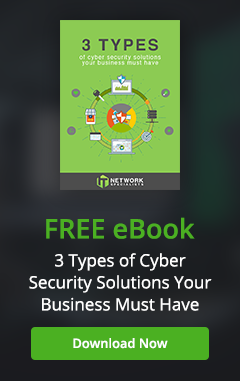Your passwords are the key to your digital kingdom. By following the latest recommendations from the National Institute of Standards and Technology (NIST), you can empower yourself with strong passwords that safeguard your online identity.
The evolution of password guidelines
Initially, NIST emphasized the complexity of passwords, encouraging a mix of uppercase letters, lowercase letters, numbers, and special characters.
Power up your passwords with a NIST-guided approach

How hackers can infiltrate your systems
Why you need to review your passwords

From social media accounts to online banking to business emails, passwords are the key to keeping your digital life safe. Yet, most people do not give much thought to creating strong passwords. In fact, many people use generic passwords such as their mother's maiden name or their birthday, making them easy targets for cybercriminals.
NIST’s password guidelines: What you need to know
In case you missed it, the National Institute of Standards and Technology (NIST) released new guidelines for creating and managing passwords. This is great news for anyone looking to improve their online security. But what do these new guidelines mean for you? In this blog post, we will discuss the basics of the NIST password guidelines.
It’s time to rethink your password strategy
In 2003, the National Institute of Standards and Technology (NIST) stated that strong passwords should consist of upper- and lowercase letters, numbers, and symbols. However, the institute has now reversed its stance. Find out why and learn what their new recommendations are.
Think your password is secure? Think again
The National Institute of Standards and Technology (NIST) created many of the password best practices you probably loathe — using a combination of letters, numbers, and special characters. The NIST now says those guidelines were ill-advised and has changed its stance.
It’s time to rethink your password
In 2003, a manager at the National Institute of Standards and Technology (NIST) authored a document on password best practices for businesses, federal agencies, and academic institutions. More recently, however, the institute has reversed its stance.
Secure your passwords now
For years, we’ve been told that strong passwords include three things: upper and lower-case letters, numbers, and symbols. And why wouldn’t we when the National Institute of Standards and Technology (NIST) told us they were the minimum for robust passwords? Here’s why and how it involves you.


